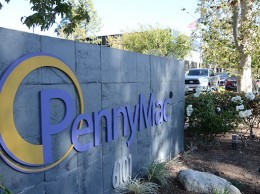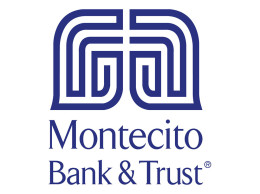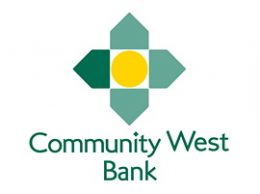Banks struggling with PPP loans for tri-county small businesses
Last-minute rules changes and a messy rollout mean small businesses and nonprofits will have to wait a little longer to get the help they’ve been promised under the CARES Act.
The $349 billion Payroll Protection Program, a key part of the act, went live on April 3, but few banks were in a place where they could start accepting applications after a late rules change left lenders scrambling to update their sites. A few area banks, including Montecito Bank & Trust, American Riviera Bank and Community West Bank, were able to pivot in time, and they saw hundreds of applications flood in.
“There’s really a lot of desperation,” said Janet Garufis, chairman and CEO of MB&T. “We’re not going to make a lot of money through this, but it’s an important community service.”
Montecito and American Riviera had to shut down their application sites to process the applications they received but Community West has pressed on. CEO Marty Plourd said the bank already has received approval from the Small Business Administration on some of the applications it has processed, and that the bank should be making initial loans within the next few days.
There’s an inherent ceiling in the system for how many loans banks are able to process, and to what degree they can participate. Because banks are not being forwarded the cash to lend out, each bank faces capital requirements that put a limit on how much they can lend.
Plourd said the bank will be able to pledge against the loans, and use the loans as collateral to keep lending money, but every bank has limitations on how much it can use. That limitation is called the leverage-capital ratio, and it uses Tier 1 capital — or how much money the bank has stored to keep it functioning through normal day-to-day business — compared to its total assets.
A bank must have a leverage ratio greater than 3 percent to be considered adequately capitalized, but community banks have different rules.
The FDIC has a framework for community banks which requires them to maintain a leverage ratio of greater than 9 percent if they have less than $10 billion in average total consolidated assets.
Because of those rules, local banks will have less money to lend.
Additionally, tri-county banks are using other tools, like delaying loan repayments and extending (or increasing) lines of credit for customers who need it, which will also restrict how much they can offer without hitting leverage limits.
Michael Pfau, a partner with business-related law firm Reicker, Pfau, Pyle & McRoy, touched on those restrictions in an email sent out to clients April 6. Pfau, a longtime bank director, detailed the steps of the loan process, and warned his clients that the SBA had rejected loans in the past because of minor continuity issues, like an address reading Santa Barbara in some instances and Goleta in others.
He also urged understanding, even while acknowledging the frustration many clients were feeling.
“Your banker no doubt is doing all that she or he can to help you complete and submit, and then to process on your behalf, an application for a loan,” Pfau wrote.
No bank has indicated that it isn’t in a place where it could make these loans, but this is why every bank is extending loan applications to their existing customers first. Community West may open its loans to non-client businesses in the future, but first it wants to make sure it can help the people it’s already servicing.
“I would hate to put someone who isn’t a client ahead of someone who has worked with us for decades,” Plourd said.
Still, even with the difficulties, Plourd said the PPP will be beneficial for both the local and the national economy. The program authorizes up to $349 billion in potentially forgivable loans, with equal terms for everyone. The loan amounts will be forgiven as long as at least 75 percent of the loan is used to cover payroll and employee and compensation levels are maintained.
“I think (the PPP) will help give the economy a soft landing and a quicker recovery,” Plourd said.
Plourd compared the current environment to the Great Recession, and found people are being much more accommodating now than they were a little more than a decade ago. He pointed to examples like rent forgiveness as a way people are taking care of each other through the health crisis.
“We are exceptionally accommodating as a society,” Plourd said.
• Contact Amber Hair at [email protected].











